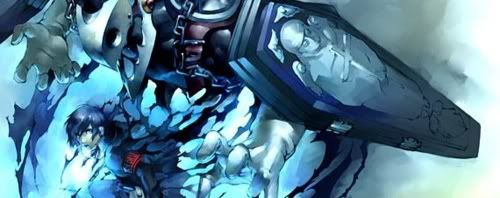1) In Okami you play the Japanese goddess of the sun, Amaterasu, who takes on the form of a wolf. The story is that a demon named Orochi, sealed away 100 years ago, is accidentally released unto the world. You have to stop him. He has drained the life and color out of the world, and as you go through the game you need to use your powers and the brushtrokes you acquire from the other Japanese gods to reanimate the world, and push back the darkness. It's not really about the story, but as simple as it sounds, it ends up being surprisingly interesting, and full of great and colorful characters.
2) Well, the most obvious thing is of course the game's artistic beauty. The entire game is drawn out as you play it in a gorgeous Japanese Ukiyo-e style. The soundtrack is a gorgeous mix of Japanese classical music, and is all instrumental. The characters are all lively and unique, and you'll find yourself attached to them very quickly. Character development is good.
Those familiar with the Zelda franchise (in its 3D forms) will have no trouble adjusting to the gameplay, as it plays almost identical to the 3D Zelda adventures. The pattern is fairly predictable: Run from town to town (in a large overworld) getting sidequests and doing odjobs for people (No, they aren't scared of the wolf). Go through a dungeon, get a new ability (brushstrokes in this game), use it to solve the dungeon's puzzle, and beat the boss. This formula may be old, but it's used because it is good. The gameplay is simple but fun, and if you do enjoy the 3D Zeldas, you will certainly enjoy this.
To put it simply: Okami is perhaps the greatest current example that video games are in fact art.
GT Video review for good meassure:

















